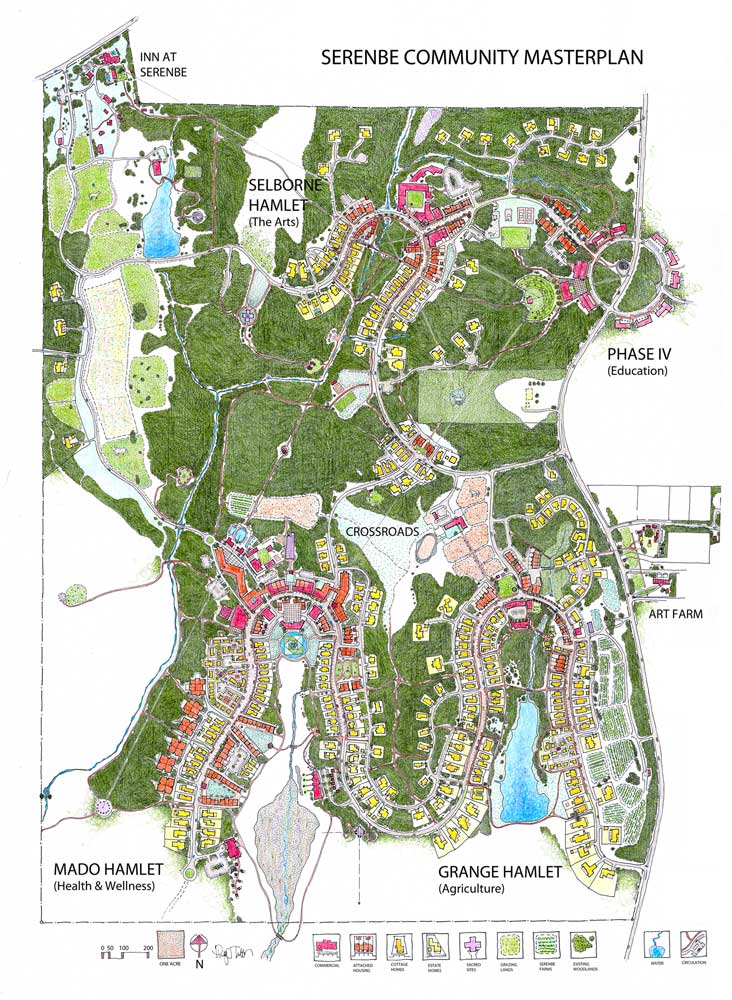In the Chattahoochee Hills of northwestern Georgia, a neighborhood was built to protect the rural land outside of Atlanta. This neighborhood would later become known as Serenbe, a blend of “serene” and “be.” Serenbe founders, Steve Nygren and Maire Lupo Nygren, constructed Serenbe with the vision of a nature-oriented community, where residents could both appreciate and utilize the 1,000-acre property. Now, fifteen years since construction began, Serenbe is home to over 650 residents who live amongst four hamlets. Serenbe offers a range of amenities comparable to most urban areas including a grocery store, school, health and wellness facility, assisted living center, community pool, retail shops, hotels and more.
One thing that sets Serenbe apart from other developed communities is the wide variety of design styles represented through architecture. In an interview with CityLab, Nygren says: “we wanted a mix of architecture so that all the buildings don’t look the same. That’s the difference between a town and a development.” Additionally, the architectural style of each hamlet was carefully selected to reflect a theme. For example, Selborne, Serenbe’s first built hamlet, represents the community’s art and culture center. Its central main street resembles an American downtown with Italian influence. On the other hand, Mado, the health and wellness hamlet, reflects a minimalist design approach that you might find in Copenhagen or Stockholm.

Apart from design, Serenbe is perhaps most well known for its dedication to nature. It boasts an impressive 25-acre organic farm that harvests over 60,000 pounds of produce each year. Connecting the four hamlets, the farm acts as the center of the community, where residents can purchase quality produce and support local farmers. In addition to preservation, Serenbe is also devoted to the conservation of energy and water within the community. Serenbe builds geothermal, solar and net zero homes that can be heated and cooled with ground-sourced heat pumps, many of which use a grey water system. A commitment to sustainability lies at the center of Serebe’s community values.
According to CityLab, “Serenbe would be simultaneously a rural and urban utopia: Residents would be surrounded by nature, but would enjoy a tight-knit community with urban-style amenities.” Serenbe has won numerous awards including the Urban Land Institute Inaugural Sustainability Award, the Atlanta Regional Commission “Development of Excellence” and EarthCraft named Serenbe the “Development of the Year.”




